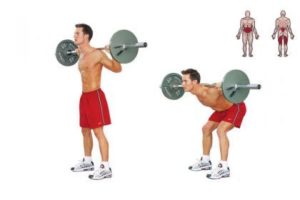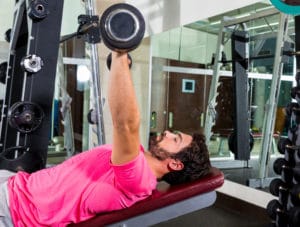The good ol’ light stretch right before you exercise. Feels good and like you made a difference doesn’t it? While it may feel good, it’s not giving you the best “bang for your buck” when it comes to warming up and mobilizing. When we warm up, we really need to “wake the body up” and turn on that sympathetic nervous system or our “flight or fight mode”. So for warming up, let’s replace the static stretching and start mobilizing into the positions we’ll be in during our workout while “waking up” our body. If this can be done, injuries can be more preventable, more work output can be performed, and you’ll be more feeling of being pain-free. Let’s start increasing our mobility and warm-up routine with these tips:
- Replace the static stretching and pick up the dynamic warm-up.Try choosing moves that mimic exercises you would perform in your workout. Say the workout involves some squats – perform some bodyweight squats, lateral shuffles, or dynamic lunges to get the heart rate increased and starts moving the joints more effectively.
- Change the Stretch– We can stretch out before a workout, but let’s change it up and use some banded stretching within the warmup. Banded stretching helps distract the joint and create some space in the joint to help stretch and release the muscle tension. For an upper body workout, try looping a band to the top of the rack. While facing the rack, loop your hand into the band around your wrist. The band is going to stay around your wrist in all position. From here, try moving the band up, down, while turning and try to position yourself in all kinds of positions to see where might be the tightest and focus on that area. Perform this slowly and with intention.
- Keep that Neutral Spine – Whenever mobilizing and warming up, make sure you keep a neutral spine. This is also a good tip whenever you are working out. When you stay in a neutral spine position, you greatly reduce the risk of injury and it is a much more powerful position to lift or move from. This position helps from rounding your back or creating tension in your hips. Especially squatting, this position helps create a much more powerful squat.
- Testing and Retesting – How can we now what our limits are or what our max range is unless we test? A great way to see the improvements after our mobility exercises and warm up is to test and retest. Test your mobility range in a position that you would very much be in during your workout. Say we’re squatting today, so let’s test our squat mobility. Notice the way your hips are feeling, how wide they are, how your ankle tightness feels, and if your back is flat or rounding. Perform your mobilizations and then re-test. Notice those same exact areas again and notice where the small and large differences are then ask yourself, “Did it create a change that makes the position easier?”


